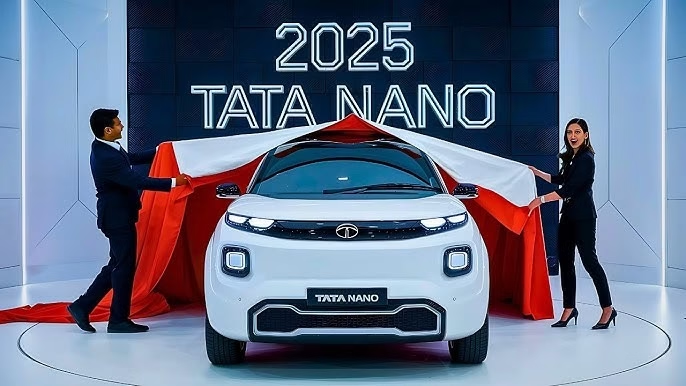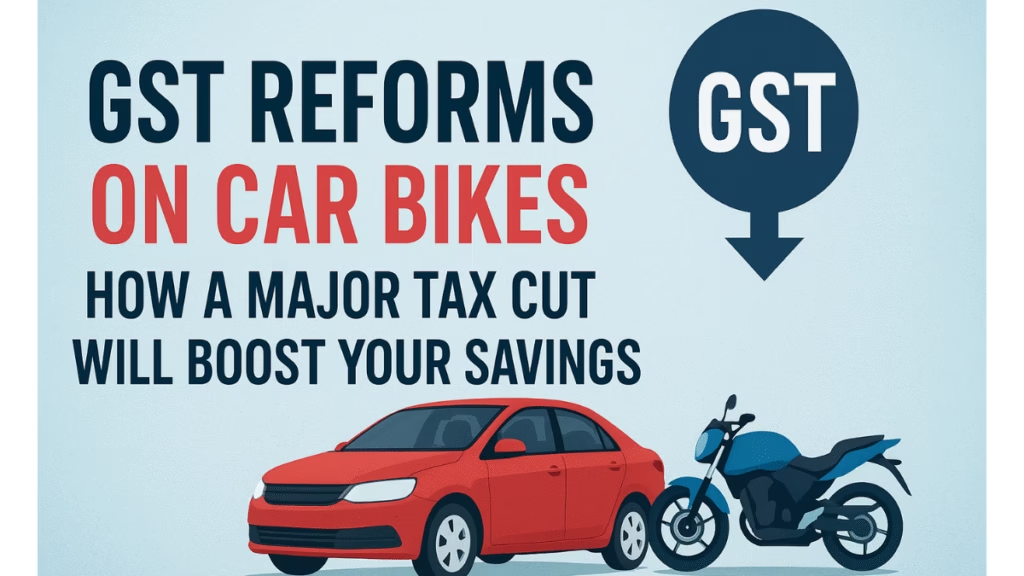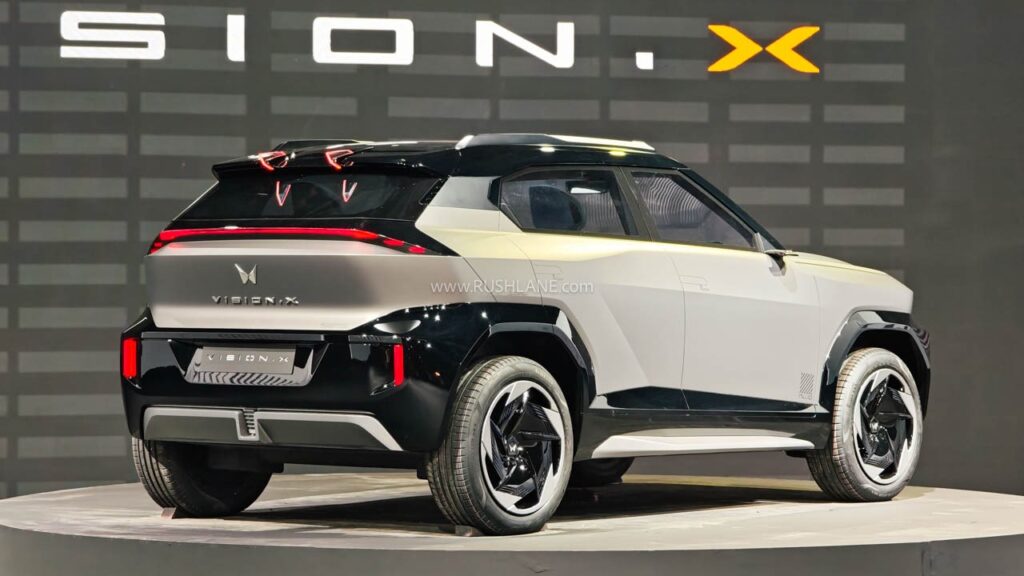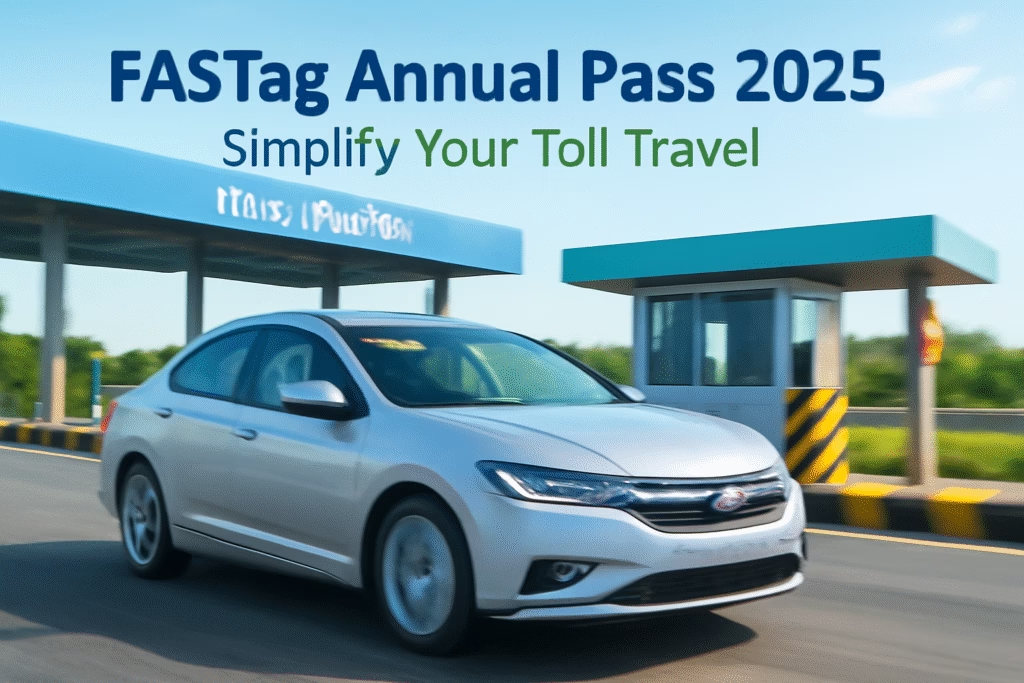India’s automobile industry is on the brink of a transformation, thanks to the government’s ambitious GST reforms on car bikes. The new proposal may slash GST rates for small cars and entry-level bikes, promising substantial savings for millions of buyers. Here’s everything you need to know about this game-changing move, how it affects prices, and why it matters for you.
Why Are GST Reforms on Car Bikes So Important?
GST (Goods and Services Tax) reform is not just about numbers—it directly impacts everyday buyers, boosting the auto sector and the economy. For years, cars and bikes have been taxed at one of the highest slabs, often making them unaffordable for budget-conscious families. The present changes aim to make mobility accessible and drive growth.
What’s Changing? Key Highlights of the Proposed GST Reforms
- GST on Small Cars: The central government proposes to reduce the GST rate for small petrol and diesel cars (engine capacity below 1,200cc, length below 4 meters) from 28% plus 1–3% cess (totaling around 29–31%) to a flat 18%.
- GST on Entry-Level Bikes: Two-wheelers with engine capacity below 350cc currently taxed at 28% will also see the rate drop to 18%.
- Luxury Cars and SUVs: Vehicles with larger engines and SUVs may be placed under a new 40% slab (including cess), keeping the overall tax in the 43–50% range.
- Electric Vehicles: EVs will continue to enjoy the lowest GST rate of just 5%—unchanged by these reforms.
- Impact Timeline: The new tax rates are expected to be implemented by Diwali 2025, subject to GST Council approval.
Who Benefits Most from GST Reforms on Car Bikes?
- Middle-class families looking for affordable, reliable transport
- First-time buyers, especially students and young professionals
- Mass-market carmakers like Maruti Suzuki, Tata Motors, and Hyundai, whose sales largely come from budget-friendly models
- Motorcycle brands such as Hero MotoCorp and Bajaj Auto, major sellers of commuter bikes
Quick Table: Current vs. Proposed GST Rates
| Category | Current GST (%) | Proposed GST (%) | Cess/Total Tax (Current) | Expected Effective Date |
|---|---|---|---|---|
| Small Cars (<1200cc, <4m) | 28 + 1–3 | 18 | 29–31% | By Diwali 2025 |
| Entry-level Bikes (<350cc) | 28 | 18 | 28% | By Diwali 2025 |
| Luxury Cars, SUVs (>1500cc) | 28 + up to 22 | 40 (incl. cess) | 43–50% | Unchanged |
| Electric Vehicles (EVs) | 5 | 5 | 5% | Unchanged |
How Do GST Reforms on Car Bikes Compare to Competitors’ Pricing Structures?
- India’s effective tax for small cars was among the highest globally, sometimes rivaling luxury car tax rates.
- With the new reforms, India’s tax burden on entry-level vehicles will be closer to countries like Thailand and Indonesia, where taxes on small cars and bikes are typically under 20%.
- The simplicity of a two-tier GST system (5% for essentials, 18% for standard goods, 40% for luxury items) aims to make compliance easy and prices more predictable.
Why Is the Indian Government Pushing for GST Reforms on Car Bikes?
- Encourage affordability and accessibility for middle-class families
- Stimulate sluggish automobile demand (car industry posted just 2% YoY growth in 2025)
- Correct anomalies where budget cars and bikes faced nearly the same tax as luxury models
- Support the auto sector, a major contributor to GDP and employment
Potential Challenges & Concerns
- Classification disputes: The reforms aim to simplify car classification based on engine size and length, which previously triggered tax disputes.
- Manufacturers of luxury vehicles may not benefit, as high-end cars and SUVs remain under the top tax bracket.
- Revenue impact: Lower GST rates might affect government revenue from auto sales, but economic growth and volume sales are expected to compensate.
What Does This Mean for You? Key Takeaways
- Buying a small car or entry-level bike after Diwali 2025 could mean direct cash savings, possibly reducing prices by ₹20,000–₹50,000 for cars and ₹10,000–₹20,000 for bikes.
- Expect a surge in launches and festive offers as automakers capitalize on the new tax environment.
- Lower vehicle prices could boost demand, helping revive the automobile industry’s growth rate.
Launch Dates, Prices, and Offers: What to Expect
- Most leading manufacturers plan to unveil special festive editions and promotional offers to coincide with Diwali 2025, when the GST reforms are expected to be implemented.
- Entry-level car prices (e.g., Maruti Alto K10, Tata Tiago) are currently in the ₹4.2–₹7 lakh range and could drop significantly after the reforms.
- Similarly, commuter bikes from brands like Hero and Bajaj, priced around ₹70,000–₹1 lakh, may become more budget-friendly.
Additional Insights from Industry Experts
- Analysts expect car demand to go up by 15–20% within six months of the reforms.
- Manufacturers see this as a chance to tap into markets that remained price sensitive and unreached due to higher taxes.
FAQs: GST Reforms on Car Bikes
When will the new GST rates take effect?
Which vehicles benefit the most from GST reforms?
Will luxury cars and SUVs get cheaper?
How much money could buyers save?
Are electric vehicles eligible for the new tax cut?
Conclusion
GST reforms on car bikes are set to make owning a vehicle more affordable for millions of Indians. By reducing tax rates on entry-level cars and bikes, the government aims to boost demand, support manufacturers, and give middle-class families more options. Watch for new launches and festive offers as the Diwali timeline approaches—and check autonewswala.com for all the latest updates and tips.
External links for further reading:
- Ministry of Finance, Government of India
- Society of Indian Automobile Manufacturers
- GST Council, India
- World Bank: India GST Reform Overview
Warm tip: Bookmark this article and share it with friends who are planning to buy a car or bike this year—the GST reforms may be the boost they were waiting for!

Prajakta specializes in automotive news, industry updates, and easy-to-follow guides. At AutoNewsWala, she covers everything from GST reforms and policy changes to car and bike maintenance tips. Her goal is to keep readers informed with accurate, timely, and useful updates from the fast-changing automobile industry.



